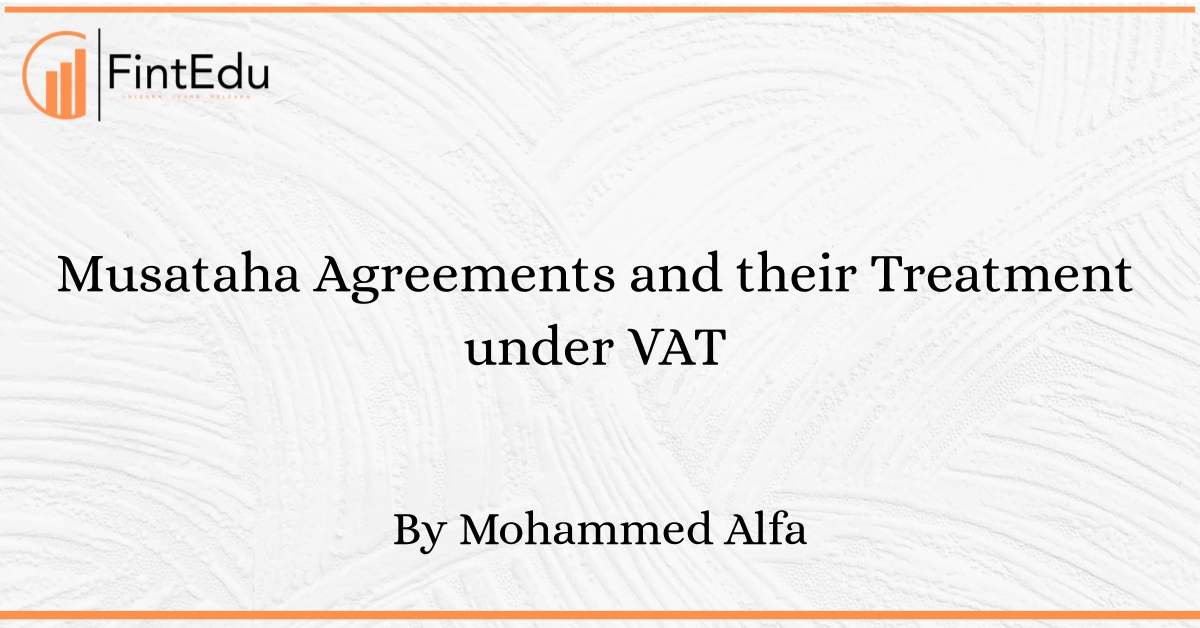LISTEN TO THIS ARTICLE
Purpose and Significance of Musataha Agreements in the UAE
The Musataha Agreement holds a significant role in the UAE's economic landscape that allows someone to use another person's land for a long time, often more than 10 years. This helps the economy by attracting big investments from private businesses. It gives investors more control over their projects and sets clear rules for what they can do.
A Musataha is a partnership between the public and private sectors, i.e. real property right which gives an investor the right to develop a piece of land for a specific period, usually up to 50 years. The private sector takes on the risks of design, construction, financing, operations, and marketing. When the agreed period ends, ownership of the project assets and land goes back to the government.
General VAT Treatment of Real Estate Transactions
For VAT purposes, real estate transactions are treated as the sale of goods, involving the transfer of ownership or usage rights to another party. The date of supply of these transactions is determined by the rules outlined in Articles 25 and 26 of the VAT Decree-Law.
VAT Treatment :
If you supply…. | ….then the VAT liability is…. |
A commercial property | 5% |
A new residential property | 0% |
An existing residential property | Exempt |
Bare Land | Exempt |
Covered Land | 5% |
A first supply of a charitable building | 0% |
A subsequent supply of charitable building | 5% |
A property located within a Designated Zone | Out of Scope |
Impact of VAT on Musataha Projects:
It's possible that when a landlord initially leases land to a tenant, it qualifies as "bare land." However, if the tenant later starts developing the land, the nature of the landlord's supply changes. Once buildings or civil engineering works are present on the land, it is no longer considered bare, and VAT treatment changes to 5%.
If the date of supply for the bare land has already been triggered under Article 25 of the Decree-Law (e.g. by a full payment prior to the lease commencing), no adjustment of the VAT treatment is required if the land ceases to be bare part-way through the lease, However, any subsequent supply of the land, such as entering into a new lease agreement or periodic supply under article 26 of the decree Law, should be subject to VAT at the standard rate. This change may require cooperation between the landlord and tenant to determine when the land is no longer considered bare.
Registered Musataha agreements are distinct from short and medium-term leases. If parties enter a Musataha agreement registered with the appropriate Land department, it is treated like a contract of sale or a one-off lease, and no adjustment to VAT treatment is needed. If the Musataha agreement is not registered, it is generally treated like any other lease. If circumstances prevent/delay the registration with the appropriate land departments, then the parties can request clarification from the FTA to determine the VAT treatment.
For instance, if a landlord leases bare land under a 50-year registered Musataha agreement, the VAT treatment is based on the nature of the land at the time of the date of supply. Even if payment is made in instalments over ten years, it is not considered a continuous supply. Therefore, the supply remains exempt from VAT as a supply of bare land even if the land's status changes during the lease period.
Disclaimer: Content posted is for informational and knowledge sharing purposes only, and is not intended to be a substitute for professional advice related to tax, finance or accounting. The view/interpretation of the publisher is based on the available Law, guidelines and information. Each reader should take due professional care before you act after reading the contents of that article/post. No warranty whatsoever is made that any of the articles are accurate and is not intended to provide, and should not be relied on for tax or accounting advice.
Contributor
Related Posts

Introduction: Loyalty programs have become ubiquitous in the UAE retail landscape, from su...
Read More